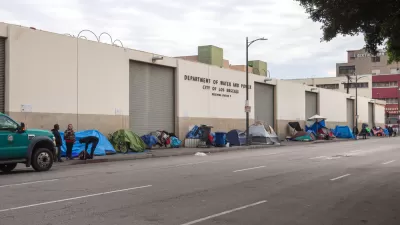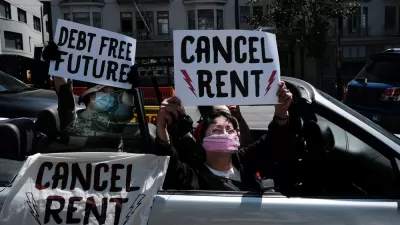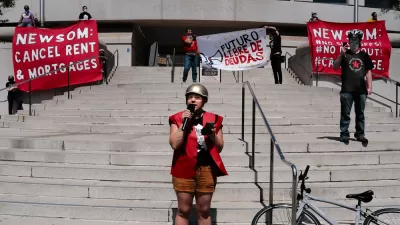The pandemic is highlighting the crucial necessity of community developers’ work. Here’s what the field will need to play its part in the recovery.

One month ago, when I began the first draft of this article, the world was drastically different. Well before we became part of this new reality, I felt an urgency to reflect and speak up about the future to make sure the value of our work doesn’t get lost. Now that urgency has grown.
Throughout my life, I’ve been fortunate to work with practitioners and leaders who have always known that we have a shared responsibility to eradicate inequality. We fight hard for what we know to be right—equitable communities that have good schools, are free of crime and disinvestment, and that are affordable, accessible, healthy, and happy. On most days, our fight already feels like an uphill battle.
Then, history puts a cherry on it. An unprecedented outbreak happens, and our fight is dwarfed by a public health emergency. Overnight, everyone’s priorities change, millions are out of work, and we all try to adjust to life and establish some semblance of a new normal. Yet while we do this the work refuses to wait.
Right now, I, like many of you, don’t need to be CEO as much as I need to be Mom.
But, the fact is that I am both—and I’m not taking any days off. The fight for equity still looms large, and COVID-19 is increasing its relevance. If we treat this crossroads like an opportunity, and not like an Armageddon, perhaps we can make advances in that fight as we make our way through the recovery.
The pandemic has amplified issues that community development organizations have been struggling with regarding the funding environment for our work for ages. To help realign America’s social contract, reimagine communities of opportunity, and endure this COVID-19-affected environment, we need our supporters to:
FULL STORY: Community Development Is Crucial in This Moment

Study: Maui’s Plan to Convert Vacation Rentals to Long-Term Housing Could Cause Nearly $1 Billion Economic Loss
The plan would reduce visitor accommodation by 25,% resulting in 1,900 jobs lost.

Alabama: Trump Terminates Settlements for Black Communities Harmed By Raw Sewage
Trump deemed the landmark civil rights agreement “illegal DEI and environmental justice policy.”

Why Should We Subsidize Public Transportation?
Many public transit agencies face financial stress due to rising costs, declining fare revenue, and declining subsidies. Transit advocates must provide a strong business case for increasing public transit funding.

Paris Bike Boom Leads to Steep Drop in Air Pollution
The French city’s air quality has improved dramatically in the past 20 years, coinciding with a growth in cycling.

Why Housing Costs More to Build in California Than in Texas
Hard costs like labor and materials combined with ‘soft’ costs such as permitting make building in the San Francisco Bay Area almost three times as costly as in Texas cities.

San Diego County Sees a Rise in Urban Coyotes
San Diego County experiences a rise in urban coyotes, as sightings become prevalent throughout its urban neighbourhoods and surrounding areas.
Urban Design for Planners 1: Software Tools
This six-course series explores essential urban design concepts using open source software and equips planners with the tools they need to participate fully in the urban design process.
Planning for Universal Design
Learn the tools for implementing Universal Design in planning regulations.
Smith Gee Studio
Alamo Area Metropolitan Planning Organization
City of Santa Clarita
Institute for Housing and Urban Development Studies (IHS)
City of Grandview
Harvard GSD Executive Education
Toledo-Lucas County Plan Commissions
Salt Lake City
NYU Wagner Graduate School of Public Service





























